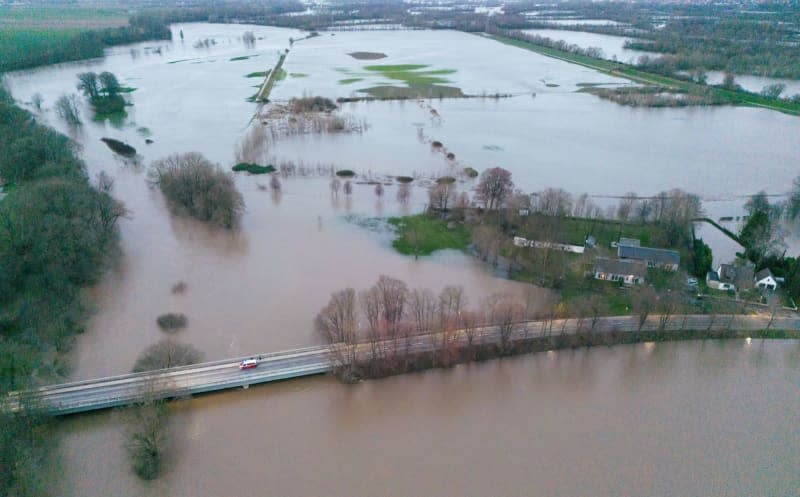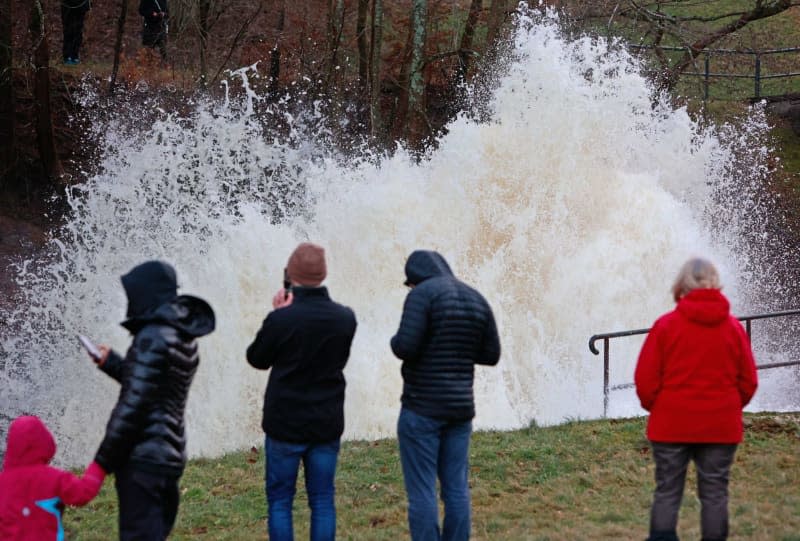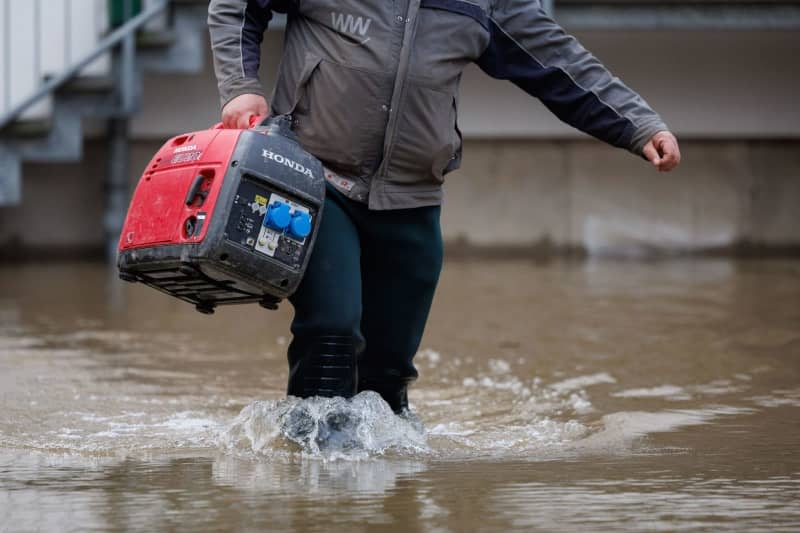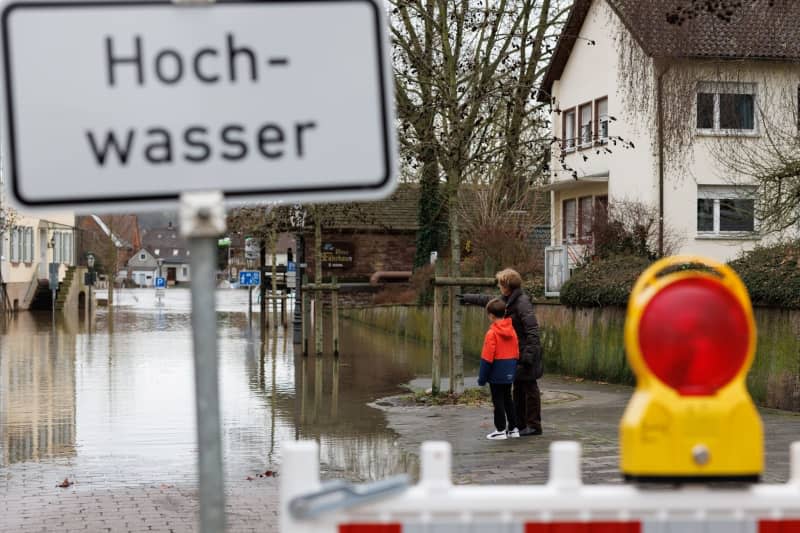Rivers, streams burst banks in Germany after days of heavy rainfall

Germany continues to face flooding threats even though severe storm warnings were lifted by weather authorities on Tuesday following heavy rains that saturated much of the country over the Christmas holiday.
The 180 residents of the village of Thürungen in central Germany were urged to get to safety on Tuesday due to the risk of rising water on the Helme river. People in nearby communities were also told to prepare for possible evacuations in the coming hours.
The situation remained tense around the village of Windehausen, not far away from Thürungen. Around 500 people were told to evacuate from there on Monday, Christmas Day.
Matthias Marquardt, mayor of the nearby town of Heringen, said the situation in Windehausen on Tuesday evening was "critical but stable" and that a no-entry order remained in effect.
The city of Braunschweig, in north-central Germany, was also on edge.
The Oker dam, in the Harz mountains south of the city, has reached its maximum capacity, resulting in the release of more water. Instead of 16 cubic meters per second, 30 cubic meters per second are now flowing into the Oker river.
With the Oker expected to burst its banks, Braunschweig has closed several roads near the waterway.
A similar scene was playing out in Dresden. Several thousand sandbags were being piled up in the eastern city in anticipation of parts of the Elbe river rising to potentially dangerous levels by Wednesday morning.
Stephan Weil, the leader of the north-western state of Lower Saxony, visited the town of Northeim, where a dike burst on Monday. Emergency workers had protected residential areas with sandbags.
In Rinteln, a town in Lower Saxony that lies to the south-west of Hanover, around 100 residents in houses near the town hall were told to evacuate on Tuesday morning.
The cellars of the buildings in the affected street were flooded. The fire department was on site with pumps and stacking sandbags.
The German Weather Service (DWD) lifted all of its storm warnings on Tuesday and said that "no heavy rainfall" is now forecast.
Warnings had been in effect across much of Germany, from the states of North Rhine Westphalia and Hesse in the west, to Bavaria in the south and Saxony in the east.
Still, rivers swollen by days of downpours remain a major flood risk.
The rivers and streams in the state of Lower Saxony have been at high levels for days and authorities warned they could rise higher yet before finally starting to lower.
The Lower Saxony State Agency for Water Management, Coastal Defence and Nature Conservation (NLWKN) expects the flood situation to remain tense.
"The situation is indeed very tense throughout Lower Saxony," said NLWKN Director Anne Rickmeyer. "We have flood situations in the major rivers, but of course we also have many small streams swelling all over the state."
The risks were easing in other parts of Germany, however. Authorities in Bavaria, in the south, and the states of Hesse and Saarland in west, said the situation on their waterways, including the Main river, were stable or improving.




